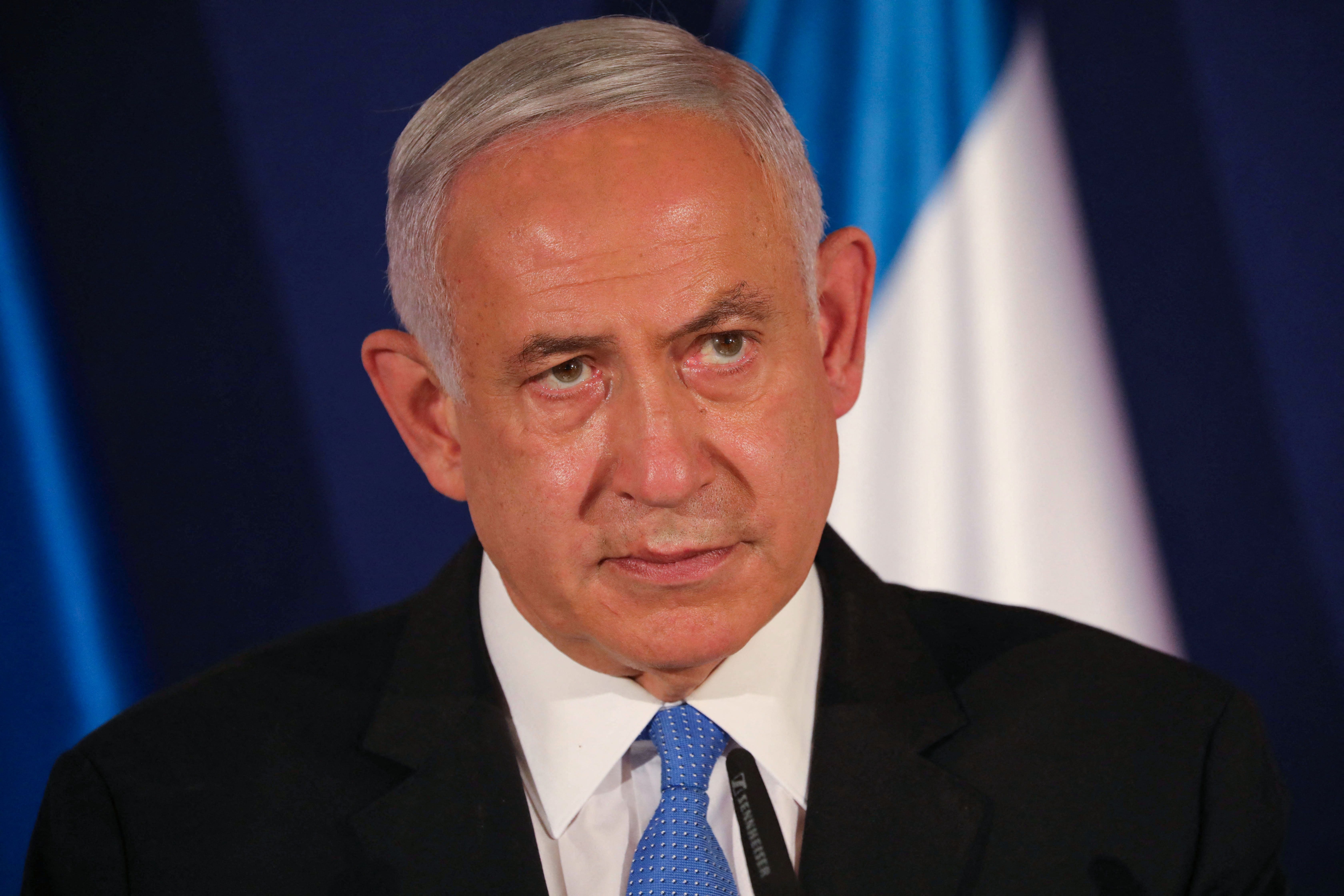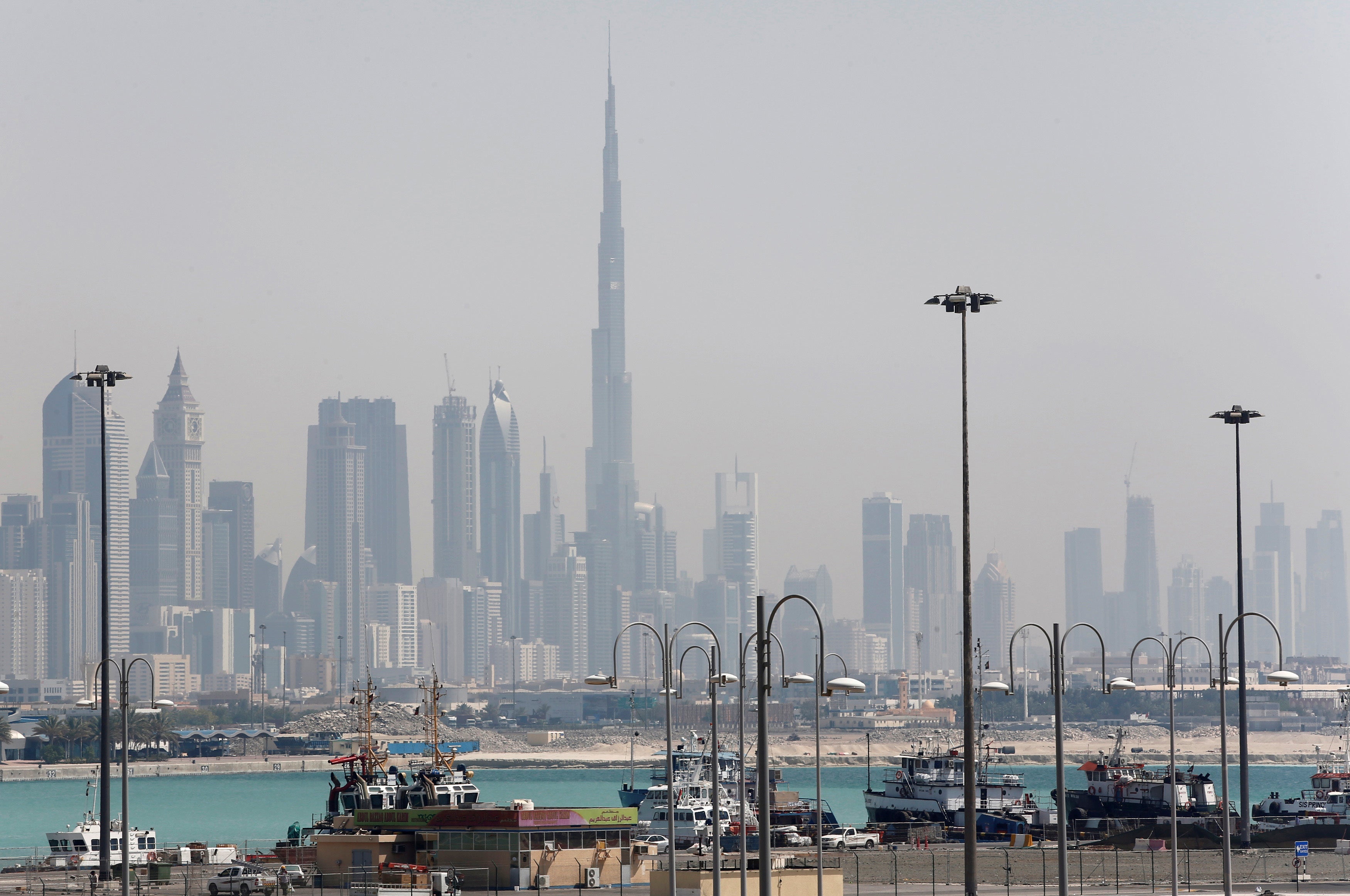Bibi’s flight to nowhere: Netanyahu’s pre-election Gulf gambit grounded as UAE trip cancelled
Officials initially blamed postponed trip on Benjamin Netanyahu’s wife Sara coming down with appendicitis, but later cited a diplomatic spat between Israel and Jordan

Your support helps us to tell the story
From reproductive rights to climate change to Big Tech, The Independent is on the ground when the story is developing. Whether it's investigating the financials of Elon Musk's pro-Trump PAC or producing our latest documentary, 'The A Word', which shines a light on the American women fighting for reproductive rights, we know how important it is to parse out the facts from the messaging.
At such a critical moment in US history, we need reporters on the ground. Your donation allows us to keep sending journalists to speak to both sides of the story.
The Independent is trusted by Americans across the entire political spectrum. And unlike many other quality news outlets, we choose not to lock Americans out of our reporting and analysis with paywalls. We believe quality journalism should be available to everyone, paid for by those who can afford it.
Your support makes all the difference.It was set to be the boldest in a long line of diplomatic wins for Israeli prime minister Benjamin Netanyahu, a historic trip to the once-forbidden Arabian Peninsula for a meeting with Gulf royalty that was rumoured to include Saudi Crown Prince Mohammed bin Salman.
Except the trip on Thursday, just 12 days before the embattled Netanyahu faces off against foes in another general election, was cancelled at the last minute.
It was the fourth time that Mr Netanyahu had delayed a long-anticipated first trip to the United Arab Emirates, the glittery Gulf federation of princedoms that normalised relations with Israel last year.
Israeli media cited officials as saying the trip was postponed this time because Mr Netanyahu’s wife Sara had come down with appendicitis, but later tied the cancellation to a diplomatic spat between Israel and Jordan.
Amman reportedly barred the prime minister from flying over its airspace after Israeli security forces got into a tiff with Jordanian Crown Prince Hussein bin Abdullah over the size of his security detail during a planned visit on Wednesday to the al-Aqsa mosque with his security.
“These difficulties apparently come from the cancellation of the Jordanian crown prince’s visit to the Temple Mount, following a dispute over security arrangements at the site,” said a statement issued by the prime minister’s office and cited by Israeli media.
Israeli radio said flying around Jordan would have added nearly three hours to the trip, making it logistically difficult. “Netanyahu had only a very tight window of time as he had to be back here to meet Hungarian and Czech leaders this evening,” said Irris Makler, an Israel-based commentator.
An earlier 4 February trip to the UAE and Bahrain, with which was also part of the normalisation agreement known as the Abraham Accords, was also postponed at the last minute over coronavirus worries, even as other diplomatic missions in and out of Israel continued.
Israel has opened diplomatic missions in both Arab monarchies, and has also normalised relations with Morocco and Sudan.
The agreements were secured thanks to diplomatic manouevres by the defeated administration of former US president Donald Trump, which maintained strong ties to Mr Netanyahu and his right-wing faction. President Joe Biden has been chillier to Netanyahu, waiting nearly a month after inauguration to phone him while calling US Nato allies and neighbours within days.
Despite successes with the UAE, Israeli media this morning reported that Mr Netanyahu has not spoken with King Abdullah of Jordan, which penned a peace treaty with Israel in 1994, underscoring strained ties between the two neighbours.
Mr Netanyahu has been struggling to score a high-profile diplomatic win ahead of the 23 March vote. Though polls show his Likud Party as the largest in Israel, he may struggle to cobble together a majority coalition after the vote. He is also being pursued by Israeli prosecutors over corruption allegations.
“The polls show it is the same mess as it was before and Netanyahu will not be able to form a government,” said Ms Makler.

The Emiratis are also straining to maintain good ties with the White House and keep somewhat of a distance from the controversial Israeli prime minister. Some speculated UAE officials may have orchestrated the crisis through Jordan to delay Mr Netanyahu’s trip until after Israeli elections.
Israeli media had reported that UAE had initially said no to the trip so close to the election but they gave in to pressure from Mr Netanyahu’s office.
“It’s quite clear that given the timing of the summit, Netanyahu was going to use it for political purposes,” said Amos Harel, a security analyst for the Israeli newspaper Haaretz.
“He’s fighting for his political life. If he loses the election his legal troubles intensify. I would assume the Emiratis are smart enough to think we don’t need this high profile visit right now, and don’t want to be seen as supporting Netanyahu’s cause too much.”


Join our commenting forum
Join thought-provoking conversations, follow other Independent readers and see their replies
Comments